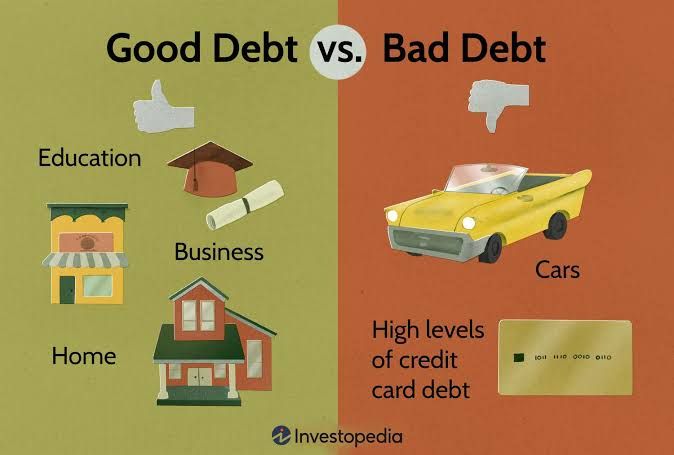Debt can be a heavy burden, affecting both your financial stability and peace of mind. Effective debt management is essential for regaining control of your finances and reducing the stress associated with debt. In this guide, we’ll explore actionable strategies to help you manage and pay off debt, improve your credit score, and achieve financial freedom.

Debt can be a heavy burden, affecting both your financial stability and peace of mind. Effective debt management is essential for regaining control of your finances and reducing the stress associated with debt. In this guide, we’ll explore actionable strategies to help you manage and pay off debt, improve your credit score, and achieve financial freedom.
Table of Contents
Why Debt Management is Important
Debt management involves creating a plan to pay off debt in a timely and efficient manner. Whether you’re dealing with credit card debt, student loans, or other types of debt, managing it effectively can help you avoid financial pitfalls, reduce interest payments, and improve your overall financial health.
Key Steps in Debt Management
Debt management involves creating a plan to pay off debt in a timely and efficient manner. Whether you’re dealing with credit card debt, student loans, or other types of debt, managing it effectively can help you avoid financial pitfalls, reduce interest payments, and improve your overall financial health.
- Assess Your Debt Situation
• List All Debts: Start by listing all your debts, including credit card balances, loans, and any other outstanding obligations. Include the interest rates, minimum payments, and due dates.
• Calculate Your Debt-to-Income Ratio: This ratio helps you understand how much of your income goes toward paying off debt. A high ratio indicates a need for aggressive debt management.
2.Create a Budget
• Track Income and Expenses: Create a detailed budget that tracks your monthly income and expenses. Identify areas where you can cut back to free up money for debt repayment.
• Prioritize Debt Payments: Allocate a portion of your budget specifically for debt payments, prioritizing high-interest debts to minimize the total interest paid over time.
3. Choose a Debt Repayment Strategy
• Debt Snowball Method: Focus on paying off the smallest debt first while making minimum payments on larger debts. Once the smallest debt is paid off, move on to the next smallest, creating momentum as you go.
• Debt Avalanche Method: Prioritize paying off debts with the highest interest rates first. This method can save you more money in the long run by reducing the amount of interest paid.
4. Consider Debt Consolidation
• Consolidate Multiple Debts: If you have multiple debts, consider consolidating them into a single loan with a lower interest rate. This simplifies payments and can lower your overall interest costs.
• Balance Transfer Credit Cards: Transfer high-interest credit card balances to a card with a lower interest rate or a 0% introductory rate to save on interest.
5. Negotiate with Creditors
• Request Lower Interest Rates: Contact your creditors and ask if they can lower your interest rates. A lower rate can reduce your monthly payments and the total amount you owe.
• Consider Debt Settlement: If you’re struggling to make payments, you might negotiate with creditors to settle for a lower amount than what you owe. Be cautious, as this can impact your credit score.
6. Seek Professional Help
• Credit Counseling Services: Non-profit credit counseling agencies can help you create a debt management plan and negotiate with creditors on your behalf.
• Debt Management Plans (DMPs): A DMP consolidates your payments into one monthly payment and may offer lower interest rates. However, be aware that enrolling in a DMP may close your credit accounts.
7. Avoid Accunulating More Debt
• Cut Back on Credit Card Use: Minimize the use of credit cards while you’re paying off existing debt. Consider using cash or debit for purchases to avoid adding to your debt load.
• Build an Emergency Fund: Set aside a small amount each month to build an emergency fund. Having this cushion can prevent you from going deeper into debt when unexpected expenses arise.
8. Monitor Your Progress and Adjust as Needed
• Track Your Debt Repayment: Regularly review your debt balances and ensure that you’re on track to meet your repayment goals. Adjust your budget and payment strategies as needed.
• Celebrate Milestones: Reward yourself when you reach significant milestones, such as paying off a credit card or reducing your debt by a certain percentage.
The Benifits Of Effective Debt Management
Effective debt management offers numerous benefits, including:
• Reduced Financial Stress: Managing debt effectively can significantly reduce the stress and anxiety associated with owing money.
• Improved Credit Score: Consistently paying down debt can improve your credit score, making it easier to qualify for loans and favorable interest rates in the future.
• Greater Financial Freedom: Paying off debt frees up your income for savings, investments, and other financial goals, giving you more control over your financial future.
Conclusion
Debt management is a crucial aspect of financial well-being. By assessing your debt, creating a budget, and choosing the right repayment strategy, you can regain control over your finances and work towards a debt-free future. Remember, the key to successful debt management is consistency, discipline, and a clear plan.
